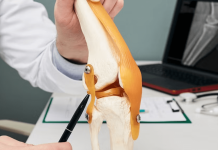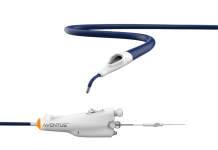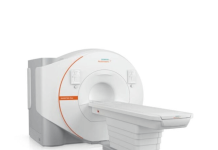The US Food and Drug Administration (FDA) has granted de novo classification to Biolinq Shine, a wearable biosensor that would be the first needle-free continuous glucose monitoring (CGM) device to arrive on the US market if approved.
Biolinq’s wearable will primarily be marketed to individuals with type 2 diabetes who are not dependent on glucose. In the form of a patch worn on the forearm, the device provides real-time glucose feedback through an LED display that is visible without a companion phone app. However, an app is also available for the provision of additional insights for users, such as activity and sleep trends.
Related: Heartflow wins FDA 510(k) clearance for next-gen plaque analysis tech
By consolidating the tracking of glucose levels and metabolic activity into one device, Shine aims to support diabetics to remain within a standard target glucose range at least 70% of the time, the guideline time in range (TIR) for diabetics as outlined by the American Diabetes Association (ADA).
Biolinq’s chairman Dan Bradbury highlights that Shine’s ability to automatically track glucose levels, physical activity and sleep information offers meaningful insights that aim to encourage healthier choices for diabetes patients.
According to GlobalData analysis, the global CGM market is growing at a CAGR of 8.62% and is projected to reach a valuation of $13.6bn by 2034, up from $5.9bn in 2024. In the US, Dexcom held an estimated 74% share of the CGM market in 2024. Other major players in the CGM space include Abbott with its FreeStyle Libre CGM system and Medtronic with its MiniMed CGM.
For healthcare providers and patients alike, the growing proliferation of wearables for remote patient monitoring (RPM) for diabetes and other healthcare conditions could mean more accessible data, earlier interventions, and a path towards more efficient and proactive models of care, according to GlobalData analysis.
Beyond diabetes, the wearables sector is burgeoning. The FDA recently granted clearance for a new Apple Watch feature designed to monitor hypertension risk, and Fasikl’s Felix NeuroAI Wristband to address essential tremors. Meanwhile, other companies are developing solutions for functions, including continuous heart monitoring, cardiovascular health tracking, and sleep cycle monitoring.






